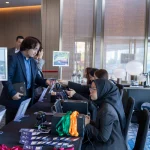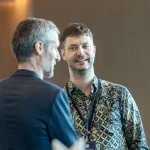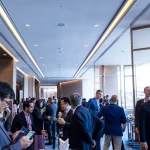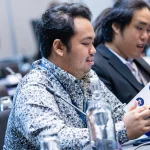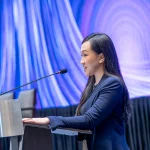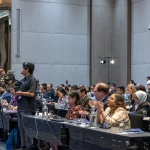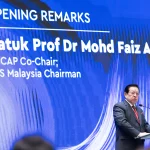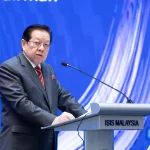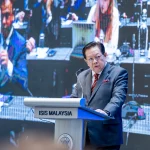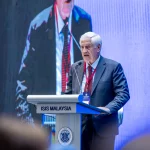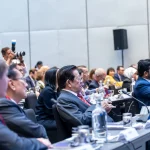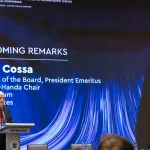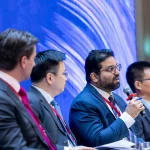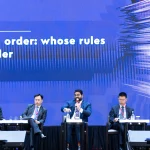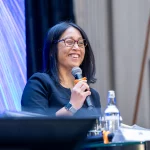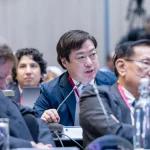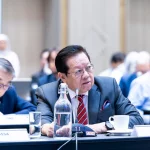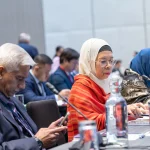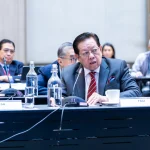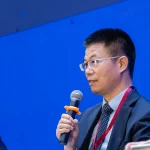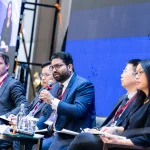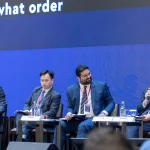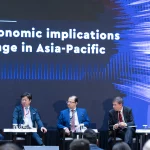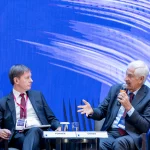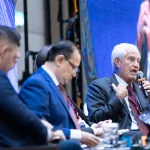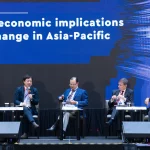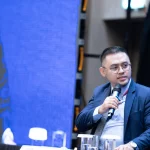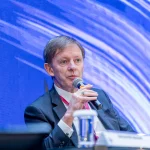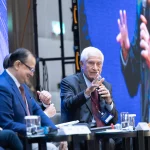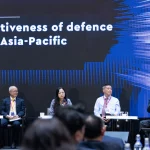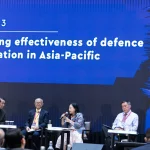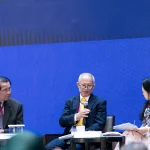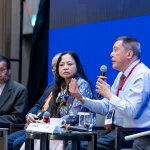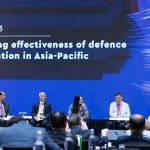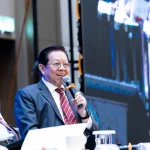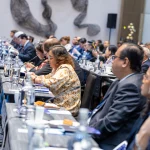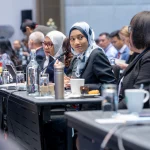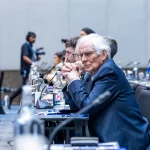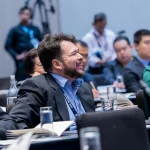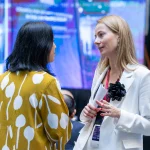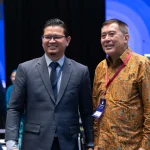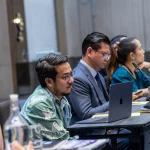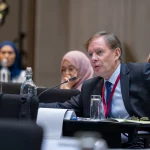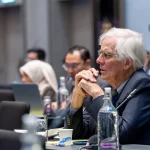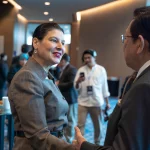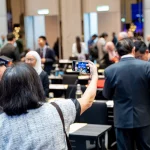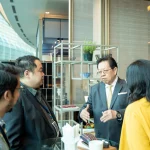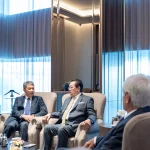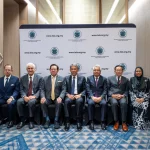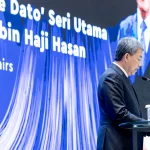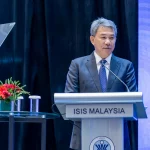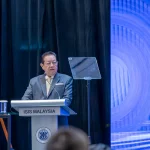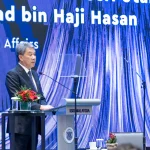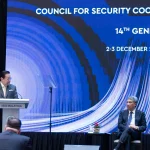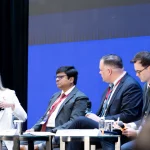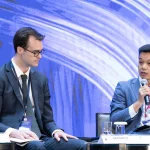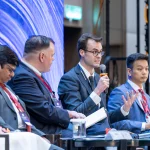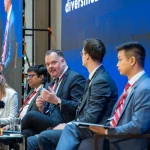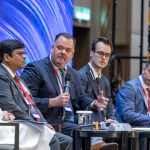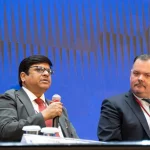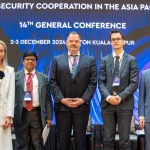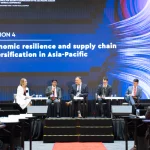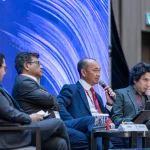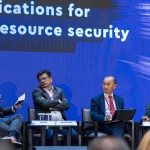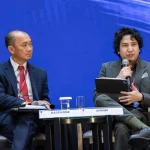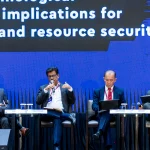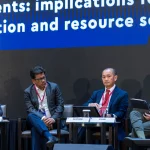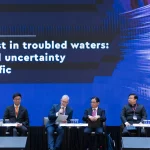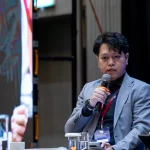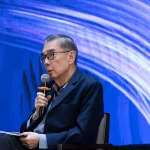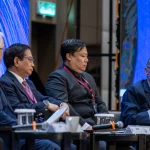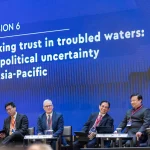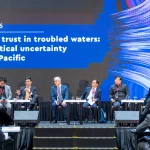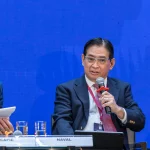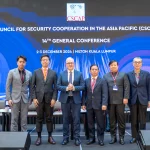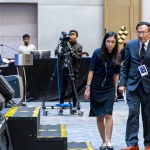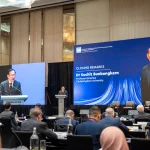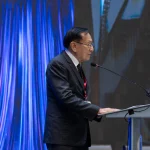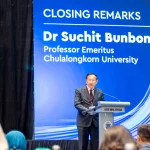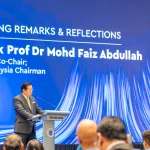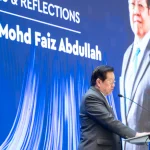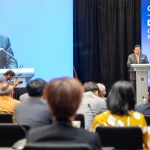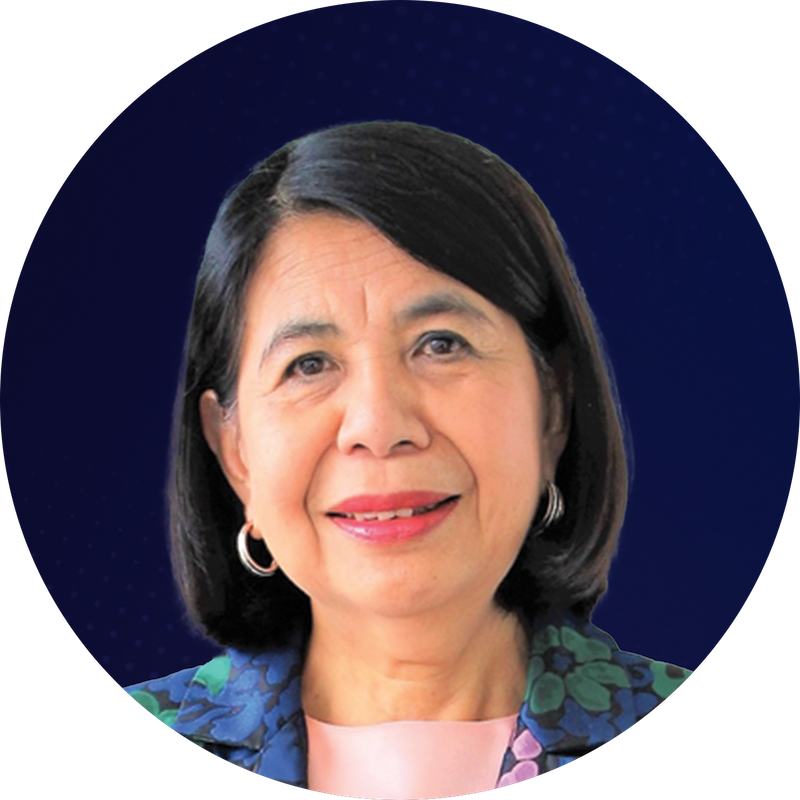The Institute of Strategic & International Studies (ISIS) Malaysia, as co-chair of the Council for Security Cooperation in the Asia-Pacific (CSCAP), will host the 14th CSCAP General Conference in Kuala Lumpur from 2-3 December.
CSCAP is a Track II network consisting of scholars, officials and other security experts and practitioners in their private capacities, who discuss political and security challenges facing the region. Its membership includes almost all the major countries in Asia-Pacific, ASEAN and its dialogue partners. Its ability to influence policymaking processes at the Track I level has positioned CSCAP to play an important role in forming a consensus among policy elites and providing a rationale for regionalism in Asia-Pacific.
This year’s General Conference will focus on big-picture issues of geopolitical uncertainty, regional defence cooperation, economic resilience and implications of technological advancements for climate change, among others.
2 December 2024
Datuk Prof Dr Mohd Faiz Abdullah
CSCAP Co-Chair;
ISIS Malaysia Chairman
Ralph Cossa
Chairman of the Board, President Emeritus and WSD-Handa Chair
Pacific Forum
United States
Historical power structures have significantly shaped the current international order. This session focuses on its foundations, examining the governing rules, strengths and vulnerabilities. It will also explore the implications of shifting power dynamics and emerging actors for future global cooperation and governance in a changing geopolitical landscape. Given its strengths and vulnerabilities, is it worth clinging to the current international order or should we consider fundamentally reshaping it to fit contemporary realities? How can international institutions evolve to be more inclusive and reflective of a multipolar world? In what ways are rising powers challenging the established norms of the international order and what implications does this have for global governance?
Moderator:
Thomas Daniel
Senior Fellow
Institute of Strategic & International Studies (ISIS)
Malaysia
Speakers:
Dr Joel Ng
Deputy Head
Centre for Multilateralism Studies
S Rajaratnam School of International Studies
Singapore
Prof Dr Kirill Babaev
Director
Institute of China and Contemporary Asia of Russian Academy of Sciences
Dr Liu Qing
Vice-President and Senior Research Fellow
China Institute of International Studies
Lizza Bomassi
Research Analyst
European Union Institute for Security Studies
France
The year 2024 is a pivotal year for Asia-Pacific, marked by domestic political changes with far-reaching implications for regional dynamics. Voters across the region are deciding not only their nations’ futures but also that of international relations and global cooperation. As nations navigate shifts in governance, ideology and policy, understanding these changes is essential for comprehending their broader implications for regional stability and economic cooperation. In what ways are domestic political changes within key countries influencing their foreign policy and security posture in Asia-Pacific? How are shifting alliances and geopolitical tensions affecting regional security dynamics? What economic policies or initiatives are emerging as a response to political changes and how might they reshape the economic landscape?
Moderator:
Shahriman Lockman
Director of Special Projects
ISIS Malaysia
Speakers:
Andrew Mantong
Researcher
Centre for Strategic and International Studies (CSIS) Indonesia
Prof Dr Ken Jimbo
Keio University
Japan
Philip Turner
Senior Fellow
Centre for Strategic Studies
New Zealand
Ralph Cossa
Chairman of the Board, President Emeritus and WSD-Handa Chair
Pacific Forum
United States
This session delves into the ADMM and ADMM-Plus frameworks, evaluating their impact on and contribution to regional stability amid shifting security dynamics and rising geopolitical tensions in Asia-Pacific. It will also discuss the implications of mini-laterals, such as AUKUS and Quad. What are the primary challenges confronting these frameworks in addressing both traditional and non-traditional security threats? How can ADMM and ADMM-Plus enhance their mechanisms for collaboration among member states to respond effectively to emerging geopolitical tensions? What roles might non-ASEAN countries play within this framework?
Moderator:
HE Dr Luan Thuy Duong
Senior Adviser
Diplomatic Academy of Vietnam
Speakers:
Huy Kanthoul Vora
Executive Director
Cambodian Institute for Cooperation and Peace
Gen (rtd) Jerdwut Kraprayoon
National Security and Strategy Expert
National Institute for Defence Studies
Thailand
Lawrence Anderson
Senior Fellow
S Rajaratnam School of International Studies
Singapore
Datuk Prof Dr Mohd Faiz Abdullah
CSCAP Co-Chair;
ISIS Malaysia Chairman
3 December 2024
Dato’ Seri Utama Haji Mohamad bin Haji Hasan
Minister of Foreign Affairs
Malaysia
The global trade landscape has been significantly reshaped by recent events, including supply chain disruptions and transformation. This session aims to explore current supply chain challenges and their implications and identify recommendations for fostering resilient supply chains in Asia-Pacific. What role does economic diplomacy play in shaping supply chain resilience and geoeconomic partnerships amid major-power rivalry? How can regional cooperation be enhanced to address emerging threats in the supply chain landscape, particularly in the context of geopolitical tensions?
Moderator:
Dr Bradley Murg
Senior Adviser and Distinguished Research Fellow
Cambodian Institute for Cooperation and Peace
Speakers:
Elena Burova
Senior Research Fellow
Institute of China and Contemporary Asia of Russian Academy of Sciences
Prof Dr Prabir De
Research and Information System for Developing Countries
India
Sam Hardwick
Research Scholar
Australian National University
Dr To Anh Tuan
Deputy Director-General
Institute for Foreign Policy and Strategic Studies
Diplomatic Academy of Vietnam
Technologies have long shaped national climate policies, commitments to international frameworks and net-zero aspirations. However, the emergence of new technologies calls for a deeper examination of how they interact with climate policy frameworks. In addition to clean energy solutions, these include high-risk technologies like carbon capture, utilisation and storage (CCUS), and investments in data centres and artificial intelligence that have implications for resource security. How do we also safeguard human and environmental rights across the critical mineral supply chain in the pursuit of a green transition? How will these technologies shape climate responses in Asia-Pacific and ASEAN and what role does international cooperation play in leveraging them for climate mitigation and adaptation strategies to ensure a just transition?
Moderator:
Dr Aaron Jed Rabena
Programme Convenor
Asia-Pacific Pathways to Progress
Speakers:
Ahmad Afandi Nor Azmi
Fellow
Institute of Strategic & International Studies (ISIS)
Malaysia
Asoka Rasphone
Deputy Director-General
Institute of Foreign Affairs
Lao PDR
Dr Dhruba Purkayastha
Director
Growth and Institutional Advancement
Council on Energy, Environment and Water
India
The Asia-Pacific region is undergoing enormous changes, marked by shifting alliances, rising tensions and evolving security challenges. The uncertainty is also driven by rapid economic growth, increasing competition and heightened public awareness of and assertiveness towards many sensitive occurrences beyond national borders. Flashpoints like South China Sea, the Korean Peninsula, Myanmar and Indo-Pacific remain critical concerns. This session focuses on long-term influences on conflict, cooperation and competition. How do shifting alliances and rivalries influence regional security? What strategies can be implemented to foster trust among nations, considering escalating tensions and competition between major powers? What lessons can be learned from past conflicts and cooperation efforts in the region that can inform current security strategies?
Moderator:
Dr David Capie
Director
Centre for Strategic Studies
Victoria University of Wellington
New Zealand
Speakers:
Dr Go Myong-Hyun
Senior Research Fellow
Institute for National Security Strategy
South Korea
Jaime B Naval
Assistant Professor
University of The Philippines Diliman
Assoc Prof Dr Ma Bo
Assistant Director
China Centre for Collaborative Study of the South China Sea
Nanjing University
Dr Mohamad Azmi Hj Mohamad
Researcher
Brunei Darussalam Institute of Policy and Strategic Studies
HE Ong Keng Yong
Executive Deputy Chairman
S Rajaratnam School of International Studies
Singapore
Dr Suchit Bunbongkarn
Professor Emeritus
Chulalongkorn University
Datuk Prof Dr Mohd Faiz Abdullah
CSCAP Co-Chair;
ISIS Malaysia Chairman
| Date | 2-3 December 2024 |
| Time | 0900-1630hrs |
| Venue | Hilton Kuala Lumpur |




